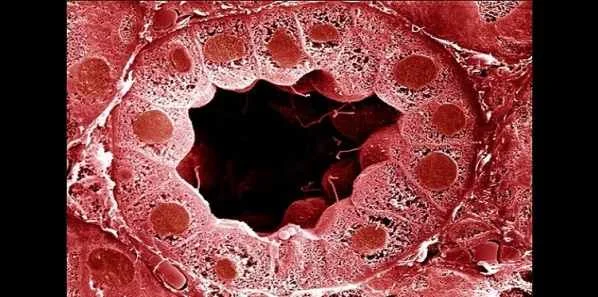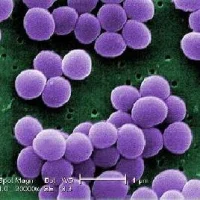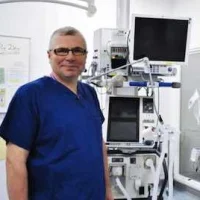The International Society of Nephrology (ISN) has presented the findings of a new global study on acute kidney injury (AKI), seen by experts as a key step forward in their efforts to eliminate preventable deaths from the condition by 2025 ('0by25 Initiative'), at its annual meeting held in Cape Town, South Africa.
AKI is a worldwide problem, killing affected patients who have no means to reach appropriate therapy in developing countries, and who could be saved with as little as $150.
According to the study "AKI Global Snapshot", conducted in September-December 2014 with over 320 participating centres in 72 countries globally, nearly 65 percent of AKI cases were reported to be community acquired, rather than developing in the hospital setting. Data were provided for over 4,000 paediatric and adult patients, with significant new information coming from Africa, Asia, and Latin America.
This is a significant new finding, which points to an opportunity and need for early recognition and detection in these out-of-hospital settings. The most common causes of AKI reported across all countries were: hypotension (low-blood pressure) and shock, infections, dehydration, cardiac events and nephrotoxic drugs. It was also reported that over 65 percent of the AKI cases had one or more of the recognised risk factors such as diabetes, heart disease and anaemia, and patients with these risk factors experienced a higher mortality and lower rate of recovery of kidney function.
"This study provides us with clear evidence of the need to identify and target high risk groups to improve the prevention and early detection of AKI," according to Dr. Ravindra Mehta, 0by25 Project Leader and Global Snapshot Coordinator. "This essential new information can now be used to design targeted education and training to enable the rapid recognition of AKI."
The Global Snapshot also found that an average of 25 percent of AKI patients seen by the participating centres required dialysis, but did not receive treatment. This was mainly due to the late presentation and disease severity of patients, adding further weight to the argument for early detection and management of AKI. In some cases, a lack of healthcare and financial resources were also reported as barriers to treatment.
In addition, study results suggest that over 30 percent of AKI patients were not managed by a nephrologist (kidney expert), a finding that was even more prevalent in low-income countries. "The ISN recognises that AKI is a multi-disciplinary problem and this data just confirms that education and training collaboration with other healthcare disciplines to raise awareness and educate and train non-nephrologists will be essential to reducing the global burden of AKI," Dr. Mehta points out.
The 0by25 Initiative aims to eliminate preventable deaths from AKI by 2025. A global human rights initiative, 0by25 places a strong emphasis on low and middle-income countries in Africa, Asia, and Latin America with disadvantaged populations and poor access to care.
The ISN provides funding through unrestricted grants to the 0by25 initiative and gave logistic support for the Global Snapshot study. "This is the first time that ISN has carried out a web-based, prospective data collection exercise, simultaneously, in hundreds of centres around the world," says Dr. Giuseppe Remuzzi, ISN President. "The Global Snapshot has helped us address the information gap on AKI and moves us a step closer to our goal of zero preventable deaths."
Source: 0by25 Initiative
Image Credit: Google Images
AKI is a worldwide problem, killing affected patients who have no means to reach appropriate therapy in developing countries, and who could be saved with as little as $150.
According to the study "AKI Global Snapshot", conducted in September-December 2014 with over 320 participating centres in 72 countries globally, nearly 65 percent of AKI cases were reported to be community acquired, rather than developing in the hospital setting. Data were provided for over 4,000 paediatric and adult patients, with significant new information coming from Africa, Asia, and Latin America.
This is a significant new finding, which points to an opportunity and need for early recognition and detection in these out-of-hospital settings. The most common causes of AKI reported across all countries were: hypotension (low-blood pressure) and shock, infections, dehydration, cardiac events and nephrotoxic drugs. It was also reported that over 65 percent of the AKI cases had one or more of the recognised risk factors such as diabetes, heart disease and anaemia, and patients with these risk factors experienced a higher mortality and lower rate of recovery of kidney function.
"This study provides us with clear evidence of the need to identify and target high risk groups to improve the prevention and early detection of AKI," according to Dr. Ravindra Mehta, 0by25 Project Leader and Global Snapshot Coordinator. "This essential new information can now be used to design targeted education and training to enable the rapid recognition of AKI."
The Global Snapshot also found that an average of 25 percent of AKI patients seen by the participating centres required dialysis, but did not receive treatment. This was mainly due to the late presentation and disease severity of patients, adding further weight to the argument for early detection and management of AKI. In some cases, a lack of healthcare and financial resources were also reported as barriers to treatment.
In addition, study results suggest that over 30 percent of AKI patients were not managed by a nephrologist (kidney expert), a finding that was even more prevalent in low-income countries. "The ISN recognises that AKI is a multi-disciplinary problem and this data just confirms that education and training collaboration with other healthcare disciplines to raise awareness and educate and train non-nephrologists will be essential to reducing the global burden of AKI," Dr. Mehta points out.
The 0by25 Initiative aims to eliminate preventable deaths from AKI by 2025. A global human rights initiative, 0by25 places a strong emphasis on low and middle-income countries in Africa, Asia, and Latin America with disadvantaged populations and poor access to care.
The ISN provides funding through unrestricted grants to the 0by25 initiative and gave logistic support for the Global Snapshot study. "This is the first time that ISN has carried out a web-based, prospective data collection exercise, simultaneously, in hundreds of centres around the world," says Dr. Giuseppe Remuzzi, ISN President. "The Global Snapshot has helped us address the information gap on AKI and moves us a step closer to our goal of zero preventable deaths."
Source: 0by25 Initiative
Image Credit: Google Images
Latest Articles
Infections, AKI, diabetes, nephrology, acute kidney injury, hypotension
The International Society of Nephrology (ISN) has presented the findings of a new global study on acute kidney injury (AKI), seen by experts as a key step...










